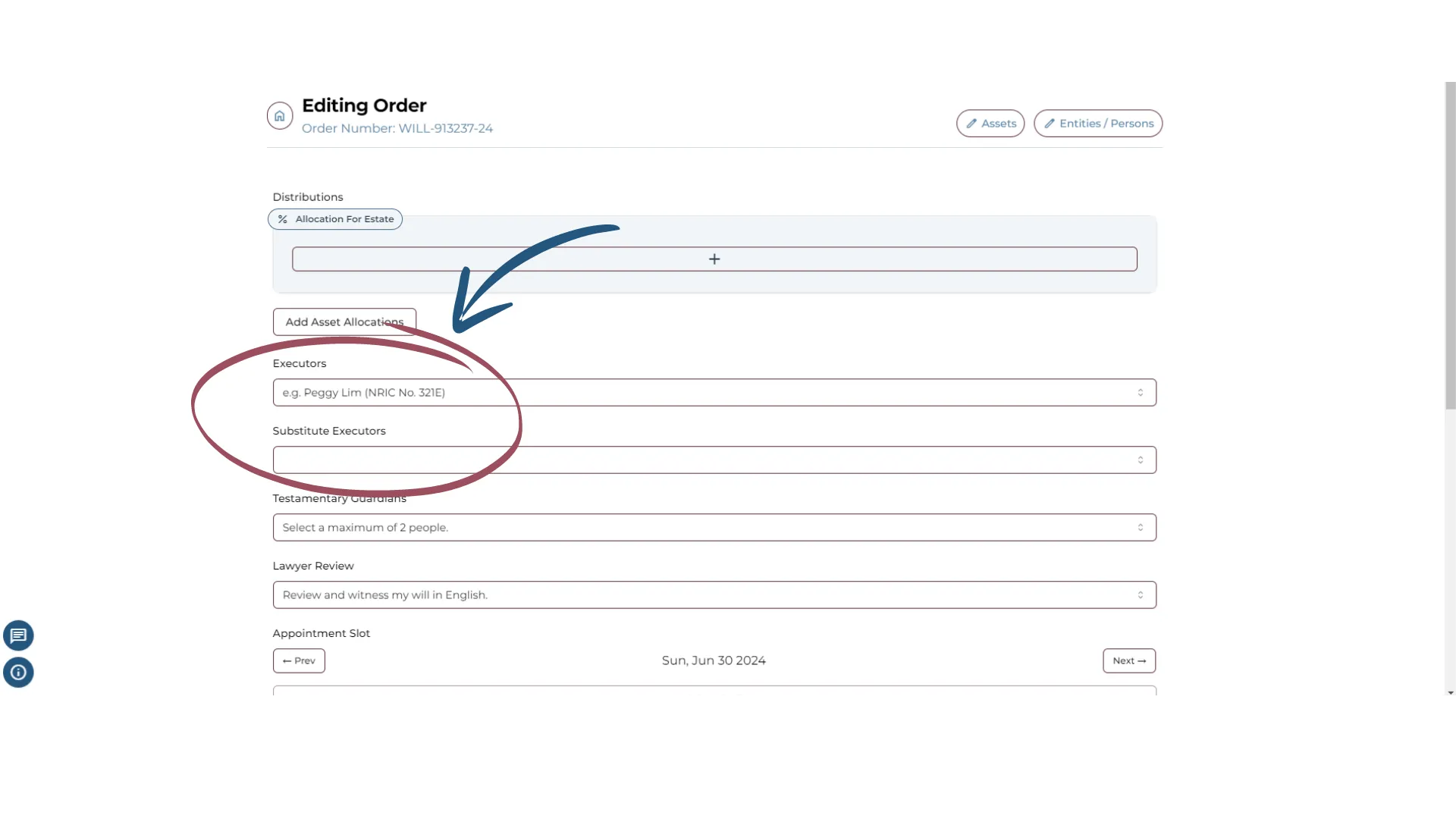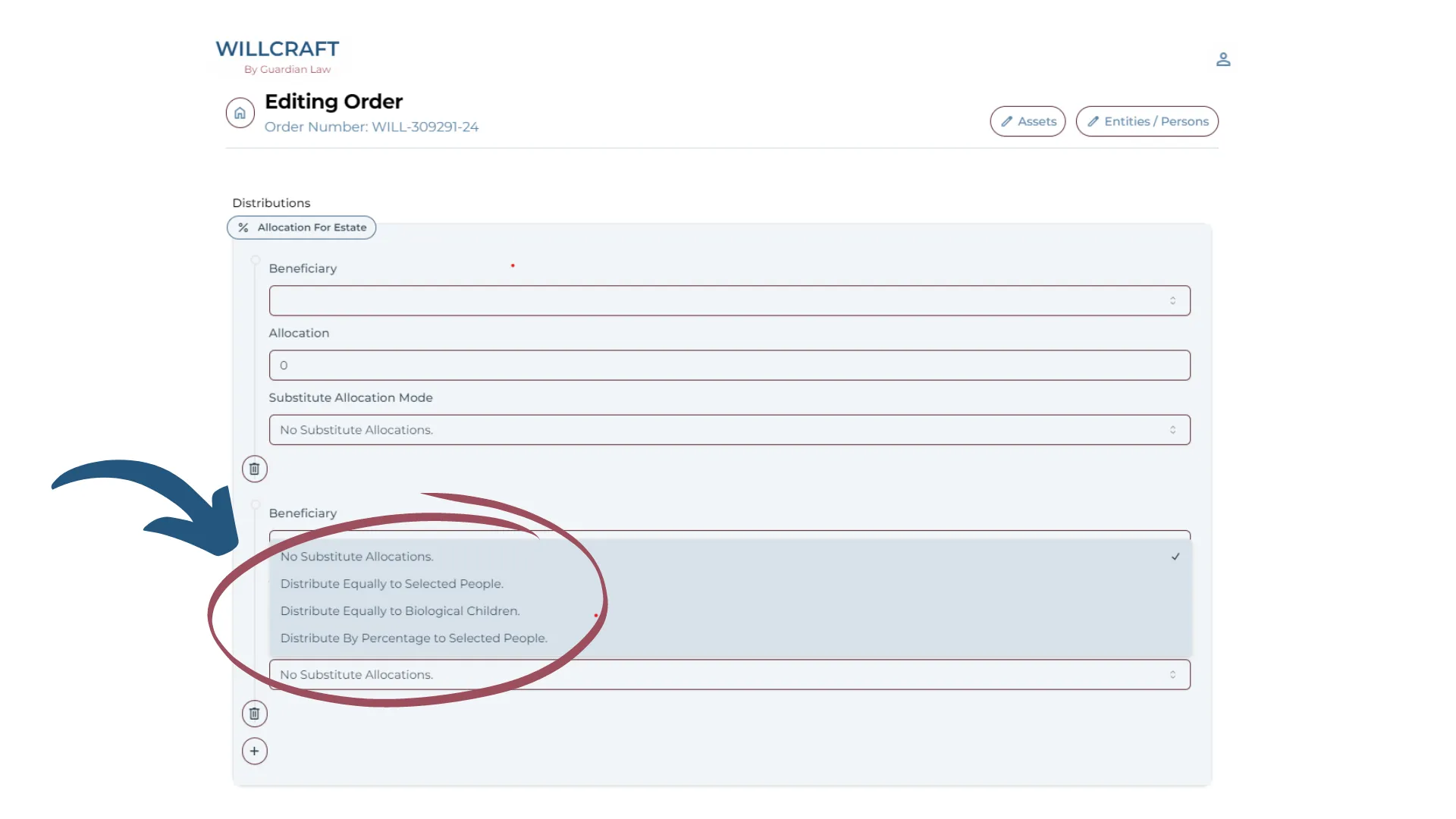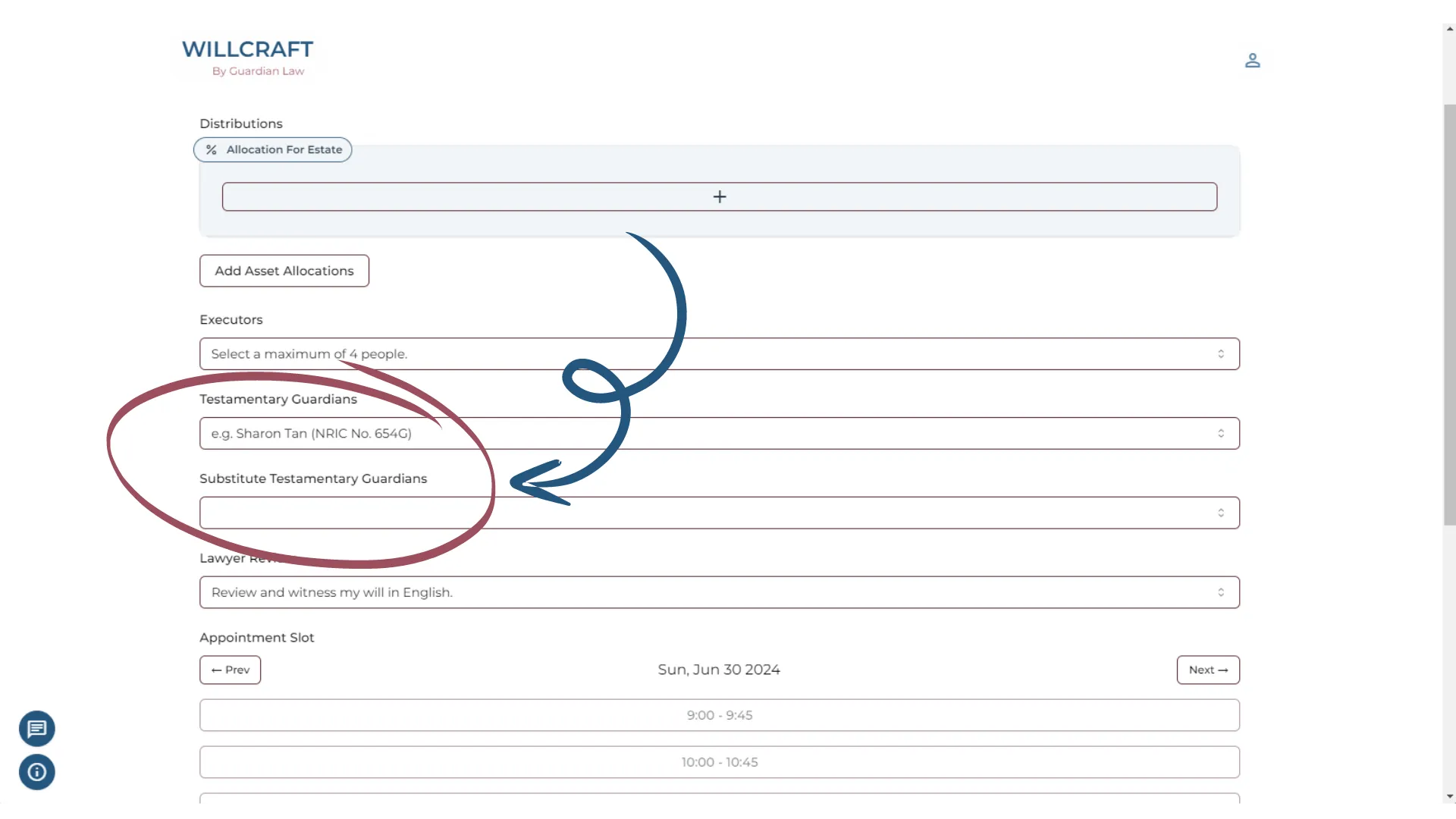Table of Contents
Creating a Will is an essential step in ensuring your assets and affairs are handled according to your wishes after you’re gone. However, even with a well-drafted Will, unforeseen circumstances can arise that may prevent your initial appointees from fulfilling their roles. That’s why it’s crucial to have substitute appointments in place – backup plans to keep your Will in motion if your first choices do not work out.
In this article, we’ll explore the importance of naming substitute executors, beneficiaries, and testamentary guardians, and how WillCraft’s online platform can streamline the process of making these crucial substitute appointments.
What are Substitute Executors?
The executor is the person responsible for carrying out the instructions outlined in your Will. They manage your estate, pay debts and taxes, and distribute assets to your beneficiaries. However, life is unpredictable, and your chosen executor may be unwilling to act or pass away or become incapacitated before your Will is executed.
In such cases, an alternative executor can be appointed to take over the responsibilities.
Imagine this scenario.
You’ve named your spouse as the executor of your Will, but tragically, your spouse passes away before you. If you don’t name a new executor, the court would have to assign an administrator, potentially someone unfamiliar with your wishes or family dynamics.
By naming a substitute executor in your Will, you ensure there’s a backup plan to handle your affairs according to your preferences if your primary executor is unable or unwilling to act. This could be a trusted friend, family member, or even a professional executor service. That way, you don’t have to create an entirely new Will if your original executor can no longer serve.
WillCraft simplifies the process of naming substitute executors, providing a dedicated section to ensure your backup plans are properly documented. You may appoint any number of substitute executors. Here’s a look at how it works:

For more information on Executors, including the roles and responsibilities that they play, read our article here.
What are Substitute Beneficiaries?
Beneficiaries are the individuals or organisations you’ve designated to receive your assets from the deceased’s estate after your passing. However, circumstances may arise where your primary beneficiaries predecease you or are unable to accept the inheritance for various reasons.
Imagine this scenario.
You’ve left your entire estate to your only child in your Will, but they tragically passed away before you. In this case, you would need to create a new Will to specify new beneficiaries. Without naming substitute beneficiaries, your assets could end up going to distant relatives or even the state, contrary to your intentions.
By appointing substitute beneficiaries in your original Will, you avoid the need to draft a new one if your primary beneficiaries predecease you or where there is inability to inherit. Specify who should receive your assets in such cases - be it other family members, friends, or charitable organisations. Naming substitute beneficiaries ensures your assets are distributed as per your wishes, preventing legal complications.
WillCraft’s user-friendly interface makes it easy to appoint substitute beneficiaries, ensuring your assets are distributed according to your wishes even if circumstances change. Let’s take a look at how simple this process is on WillCraft’s platform:

For more information on the topic of substitute beneficiaries and the consequences of not having a backup, read our article here.
What are Substitute Testamentary Guardians?
If you have minor children, your Will should name a testamentary guardian – someone you trust to care for and raise your children in the event that both parents pass away. However, it’s essential to have a backup plan in case your chosen guardian is unable or unwilling to take on this responsibility.
Imagine this scenario.
You’ve named your sibling as the guardian for your children, but he has developed a debilitating illness that prevents him from providing adequate care. Without a substitute guardian appointed, the court would have to decide who should raise your children, potentially someone you may not have chosen.
By naming a substitute testamentary guardian in your Will, you can ensure that your children are cared for by someone you trust, even if your first choice is unavailable. This could be another family member, a close friend, or even a trusted couple who shares your values and parenting values.
WillCraft’s platform also allows you to easily appoint substitute testamentary guardians for your minor children, ensuring their care is entrusted to someone you trust. Here’s how you can do it:

How to Appoint Multiple Substitutes in Your Will
The process of appointing substitute executors, beneficiaries, and guardians in your Will is relatively straightforward, and WillCraft’s interface streamlines this whole process seamlessly by allocating sections for naming your substitute appointments (but more on this later![hashtag to below screenshot of WC function substitute page]). Here’s a general overview of the steps involved:
-
Choose your substitutes carefully
Select individuals or organisations you trust to carry out your wishes if your primary appointees are unable to do so. Consider their trustworthiness, capability, and willingness to take on these roles.
-
Clearly identify your substitutes
In your Will, explicitly name your substitute executor, beneficiaries, and guardians, and specify the order in which they should be considered if multiple substitutes are named.
-
Consider reviewing your Will regularly
As life events occur, consider drafting a new Will on WillCraft to realign your substitute appointments accordingly. This could include situations such as:
Situation 1: Your named substitute executor, beneficiary, or guardian passes away or becomes unable/unwilling to serve in that role.
Situation 2: You have a new child and need to update your substitute guardian appointment.
Situation 3: Your personal relationships or values change, prompting you to modify your substitute beneficiary selections.
By leveraging WillCraft’s user-friendly platform to generate a fresh Will with your updated substitute appointments, you can ensure that your latest wishes and backup plans are properly documented.
Take the opportunity to create a fresh Will to ensure that your wishes are always up to date with WillCraft! Avoid the mess of modifying your Will (which would cost the same as making a new one!) so that your loved ones will have clear and precise instructions of what you want.
The Convenience of Online Will Platforms Like WillCraft
Creating a comprehensive Will that includes substitute appointments can be an overwhelming task, especially when navigating complex legal jargon and requirements. That’s where online Will platforms like WillCraft can be a game-changer.
WillCraft’s user-friendly interface guides you through the process of drafting your Will, including the ability to easily name substitute executors, beneficiaries, and guardians. With clear prompts and explanations, you can ensure that your substitute appointments are properly documented and legally valid.
Put your mind at ease with WillCraft’s user-friendly tools for documenting your substitute appointments.
Conclusion
While creating a Will is a crucial step in estate planning, it’s equally important to have a backup plan in place. By naming substitute executors, beneficiaries, and testamentary guardians, you can safeguard your wishes and provide a sense of security for your loved ones.
Don’t leave your legacy to chance. Take action today and explore the convenience of WillCraft’s online platform to draft a comprehensive Will that includes these essential substitute appointments. Protect your family’s future and ensure your wishes are honoured, no matter what life may bring. Click here to discover how WillCraft works!
Safeguard your family's future with WillCraft!
Are you prepared for life's unexpected turns?
Note: Trying out WillCraft's interface is free! No credit card is required.
Frequently Asked Questions
What is a substitute executor in a Will?
A substitute executor is a backup person named in your Will to manage your estate and carry out your wishes if your primary executor is unable or unwilling to act.
Why should I name substitute beneficiaries in my Will?
Naming substitute beneficiaries ensures your assets go to your intended recipients even if your primary beneficiaries predecease you or cannot inherit for any reason.
Who can be appointed as a substitute guardian for minor children?
You can appoint a trusted family member, close friend, or couple who shares your values as a substitute guardian to care for your minor children if your first choice is unavailable.
How do I properly document substitute appointments in my Will?
Clearly name your substitute executors, beneficiaries, and guardians in your Will, specifying the order they should be considered if you have multiple substitutes.
What are the benefits of using WillCraft for substitute appointments?
WillCraft simplifies naming and documenting legally valid substitute executors, beneficiaries, and guardians with user-friendly guidance to protect your wishes.
